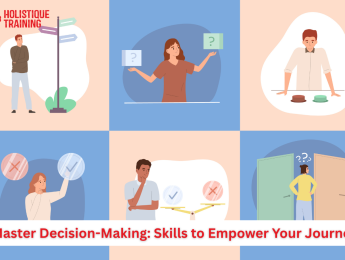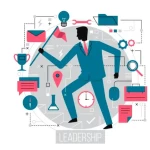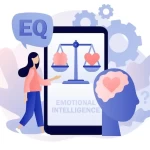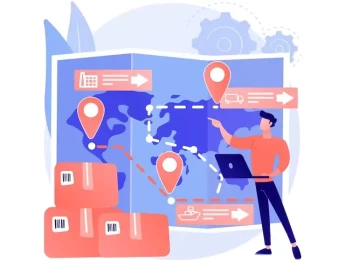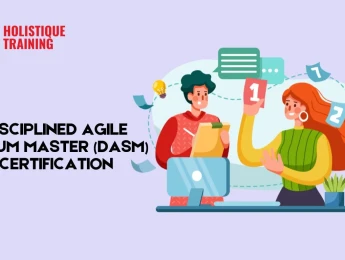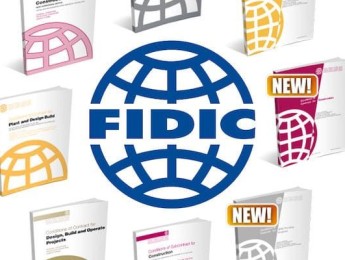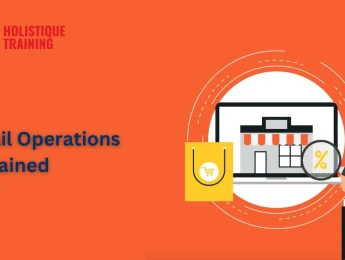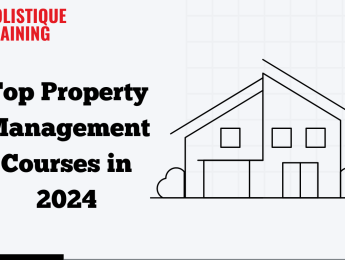- Table of Contents
- Introduction
- What are the decision making skills?
- Critical Thinking: Navigating the Information Maze
- Problem-Solving: Unraveling Complexity
- Analytical Skills: Decoding Data for Informed Choices
- Emotional Intelligence: The Human Element in Decision-Making
- Strategic Thinking: Charting a Course for Success
- Creativity: Infusing Innovation into Decision-Making
- Decision-Making Under Uncertainty: Navigating the Unknown
- Time Management: The Clockwork of Decision-Making
- Communication Skills: Articulating Decisions with Precision
- Adaptability: Flexibility in Decision-Making
- Why is it crucial to have strong decision-making skills?
- Foundation for Success:
- Effective Problem-Solving:
- Navigating Complexity:
- Leadership Excellence:
- Optimizing Resource Allocation:
- Enhancing Interpersonal Relationships:
- Strategic Planning and Goal Attainment:
- Risk Management:
- Personal Empowerment and Confidence:
- Continuous Growth and Learning:
- What are the Key Elements of Effective Decision-Making ?
- Clarity of Goals
- Gathering Relevant Information
- Identifying and Evaluating Options
- Coping with Uncertainty
- Strategies for Informed Decision-Making
- Embrace Flexibility
- Scenario Planning
- Gather Diverse Perspectives
- Utilize Decision Trees
- Real Options Theory
- Monte Carlo Simulation
- Continuous Monitoring and Adaptation
- How do Emotions Impact the Decision-Making Process?
- The Emotional Canvas:
- The Neuroscience of Emotion and Decision-Making:
- The Impact of Positive Emotions:
- The Shadow of Negative Emotions:
- The Role of Emotion in Risk Perception:
- Emotional Contagion and Social Decision-Making:
- Emotional Intelligence and Decision-Making:
Introduction
Navigating the intricate world of decision-making demands a blend of critical thinking, problem-solving, and data interpretation. Rooted in critical thinking, these skills extract essentials from information overload, while adept problem-solving transforms challenges into strategic opportunities in dynamic settings.
In the age of big data, proficiency in interpreting information becomes the hallmark of decision-making excellence. Rigorous risk assessments empower resilient decision-making, crucial for success in professional arenas and contributing to organizational triumph.
This journey is a continuous evolution, ensuring individuals remain versatile decision-makers. In this exploration, we unveil the transformative impact of these skills on personal and professional growth within the realm of decision-making.
What are the decision making skills?
Decision-making skills encompass a range of cognitive abilities and competencies that individuals use to navigate choices and arrive at informed and effective decisions. These skills are crucial in both personal and professional contexts, influencing various aspects of life such as problem-solving, leadership, and strategic planning. Here are detailed explanations of key decision-making skills:
Critical Thinking: Navigating the Information Maze
Critical thinking serves as the bedrock of sound decision-making. In a world inundated with information, individuals with strong critical thinking skills can cut through the noise. They possess the ability to objectively analyze data, consider diverse perspectives, and assess the reliability of information. This skill empowers decision-makers to weigh the pros and cons of various options, ensuring a well-informed choice.
Problem-Solving: Unraveling Complexity
The ability to solve problems is a cornerstone of effective decision-making. Problem solving skills involve breaking down complex issues into manageable components, applying logical reasoning, and implementing viable solutions. Decision-makers adept at problem-solving can navigate challenges with a systematic approach, turning obstacles into opportunities for growth and innovation.
Analytical Skills: Decoding Data for Informed Choices
In an era of big data, analytical skills are indispensable for decision-makers. These skills enable individuals to interpret and understand vast amounts of information, identify patterns, and draw meaningful conclusions. Decision-makers with analytical prowess can make sense of data, ensuring that their choices are grounded in a comprehensive understanding of the situation.
Emotional Intelligence: The Human Element in Decision-Making
Beyond data and logic, emotional intelligence plays a pivotal role in decision-making. This skill involves recognizing and understanding emotions, both in oneself and others. Decision-makers with high emotional intelligence can navigate interpersonal dynamics, incorporating empathy and awareness into their choices. This nuanced approach fosters collaboration and strengthens the human connection within the decision-making process.
Strategic Thinking: Charting a Course for Success
Strategic thinking is the compass that guides decisions towards long-term success. It involves anticipating future trends, planning for the future, and aligning choices with overarching goals. Decision-makers with strategic thinking skills can make decisions that not only address immediate concerns but also contribute to the sustainable growth and prosperity of an organization or individual endeavors.
Creativity: Infusing Innovation into Decision-Making
Creativity is the spark that ignites innovative decision-making. The ability to generate novel ideas and solutions adds a layer of richness to the decision-making process. Creative decision-makers think beyond conventional boundaries, introducing fresh perspectives and unconventional approaches that elevate the quality of their choices.
Decision-Making Under Uncertainty: Navigating the Unknown
In a world of uncertainties, the ability to make decisions under ambiguous conditions is a valuable skill. Decision-makers who excel in uncertainty can assess risks, weigh probabilities, and make informed choices even when faced with limited information. This skill involves embracing ambiguity and making calculated decisions that stand the test of unpredictability.
Time Management: The Clockwork of Decision-Making
Effective decision-making requires more than just cognitive skills; it demands efficient time management. The skill of prioritizing tasks, allocating resources judiciously, and meeting deadlines ensures that decisions are made within reasonable time frames. Well-managed time contributes to the avoidance of rushed decisions, fostering a climate where choices can be carefully considered and thoughtfully executed.
Communication Skills: Articulating Decisions with Precision
No decision exists in isolation; effective communication is key to ensuring that choices are understood, accepted, and supported by relevant stakeholders. Decision-makers with strong communication skills can articulate their thoughts, ideas, and decisions with clarity and persuasiveness, fostering collaboration and garnering the necessary support for successful implementation.
Adaptability: Flexibility in Decision-Making
Adaptability is the secret weapon of successful decision-makers. This skill involves being flexible and open to change, adjusting decisions when necessary based on evolving circumstances. Decision-makers who can adapt effectively are better equipped to handle unexpected developments, demonstrating resilience and agility in the face of uncertainty.
Table 1: Decision-Making Skills
Decision-Making Skill | Description |
Critical Thinking | Cut through information overload, objectively analyze data, consider diverse perspectives, and weigh pros and cons for well-informed choices. |
Problem-Solving | Break down complex issues, apply logical reasoning, and implement viable solutions, turning challenges into opportunities for growth. |
Analytical Skills | Decode data, interpret vast amounts of information, identify patterns, and draw meaningful conclusions to ensure choices are well-grounded. |
Emotional Intelligence | Recognize and understand emotions in oneself and others, navigate interpersonal dynamics, incorporate empathy, and strengthen human connection within decision-making. |
Strategic Thinking | Anticipate future trends, plan for the future, and align choices with overarching goals for decisions that contribute to sustainable growth. |
Creativity | Ignite innovative decision-making by generating novel ideas and solutions, introducing fresh perspectives, and thinking beyond conventional boundaries. |
Decision-Making Under Uncertainty | Excel in making decisions under ambiguous conditions, assess risks, weigh probabilities, and make informed choices even with limited information. |
Time Management | Prioritize tasks, allocate resources judiciously, and meet deadlines to ensure decisions are made within reasonable time frames, avoiding rushed choices. |
Communication Skills | Key to effective decisions; articulate thoughts, ideas, and decisions with clarity and persuasiveness, fostering collaboration and garnering necessary support. |
Adaptability | Secret weapon for successful decision-makers; be flexible and open to change, adjusting decisions based on evolving circumstances, demonstrating resilience and agility in uncertainty. |
Why is it crucial to have strong decision-making skills?
In the intricate tapestry of life, decisions act as the threads that weave our experiences, shaping the narrative of our journey. The ability to make sound choices is a skill that transcends professions and personal pursuits, making strong decision-making skills a cornerstone of success and fulfillment. In this blog, we delve into the multifaceted reasons why cultivating robust decision-making skills is not just beneficial but indeed crucial.
Foundation for Success:
Strong decision-making skills form the bedrock of success, both professionally and personally. Whether in the boardroom or the living room, the choices we make ripple through every aspect of our lives. Adept decision-makers are better positioned to seize opportunities, navigate challenges, and chart a course toward their goals, laying the foundation for a successful and fulfilling life.
Effective Problem-Solving:
Life is a series of challenges, and effective problem-solving is a direct byproduct of strong decision-making skills. When faced with obstacles, those with adept decision-making abilities can analyze situations, identify potential solutions, and implement effective strategies. This capacity to tackle problems head-on enhances resilience and fosters a proactive approach to life's inevitable hurdles.
Navigating Complexity:
The world we live in is complex and dynamic, requiring individuals to navigate through a labyrinth of choices. Strong decision-making skills empower individuals to unravel complexity, break down intricate issues into manageable components, and make informed choices. In a rapidly changing landscape, the ability to navigate complexity is a valuable asset that fosters adaptability and ensures better decision outcomes.
Leadership Excellence:
Leadership and decision-making are intertwined, with effective leaders often distinguished by their ability to make decisive and informed choices. Whether leading a team, an organization, or oneself, the capacity to make sound decisions inspires confidence, fosters trust, and establishes a compelling vision for the future. Strong decision-makers, therefore, often emerge as influential and respected leaders in various domains.
Optimizing Resource Allocation:
Every decision involves the allocation of resources, be it time, money, or manpower. Strong decision-making skills enable individuals to optimize these resources, ensuring they are directed toward endeavors that align with overarching goals. Efficient resource allocation contributes to productivity, minimizes waste, and enhances the likelihood of successful outcomes.
Enhancing Interpersonal Relationships:
Decision-making is not a solitary endeavor; it often involves collaboration and communication. Individuals with strong decision-making skills can navigate interpersonal relationships effectively, considering the needs and perspectives of others. This fosters positive communication, reduces conflicts, and contributes to the development of healthy and mutually beneficial relationships.
Strategic Planning and Goal Attainment:
Strategic thinking is a key component of strong decision-making skills. Individuals who can think strategically are adept at setting long-term goals, planning their actions, and aligning their decisions with a broader vision. This strategic approach ensures that choices are not only beneficial in the short term but also contribute to the realization of larger aspirations.
Risk Management:
Life is inherently uncertain, and every decision involves an element of risk. Strong decision-making skills include the ability to assess risks, weigh probabilities, and make informed choices in the face of uncertainty. This risk management capability mitigates potential negative outcomes and enhances the likelihood of positive results.
Personal Empowerment and Confidence:
Cultivating strong decision-making skills empowers individuals to take control of their lives. The confidence that comes from making informed choices fosters a sense of personal empowerment. This, in turn, fuels a positive feedback loop where increased confidence leads to more decisive actions and, consequently, to greater personal and professional success.
Continuous Growth and Learning:
Decision-making is a dynamic process that evolves with experience and learning. Those with strong decision-making skills embrace a mindset of continuous improvement. They learn from both successes and failures, refining their approach and expanding their repertoire of strategies. This commitment to growth ensures that decision-makers remain adaptable and resilient in the face of new challenges.
What are the Key Elements of Effective Decision-Making ?
Clarity of Goals
The first cornerstone of effective decision-making lies in the clarity of goals. Without a clear understanding of what we aim to achieve, our decisions become rudderless, susceptible to the currents of uncertainty. Whether in personal aspirations or professional endeavors, defining clear and achievable goals provides the compass by which we navigate our decision-making journey.
To enhance this aspect of decision-making, it is crucial to invest time in self-reflection and goal setting. What are the long-term objectives? How do our short-term decisions align with these objectives? By establishing a roadmap, we infuse our choices with purpose and direction.
Gathering Relevant Information
In the digital age, information is abundant, but discerning what is relevant can be a challenge. The second element of effective decision-making involves the skill of gathering pertinent information. This necessitates a discerning eye to filter through the noise and extract the data that truly matters.
Research, data analysis, and a comprehensive understanding of the context are vital components. Whether faced with choices in business strategies or personal matters, the more informed we are, the better equipped we become to make decisions that stand the test of scrutiny.
Identifying and Evaluating Options
Decision-making is, at its core, a choice between options. The third key element involves the ability to identify and evaluate these options systematically. This requires a balance between creativity and pragmatism, exploring alternatives while considering their feasibility and alignment with our goals.
The process of identifying options involves thinking beyond the obvious and embracing a mindset of openness to possibilities. Once options are on the table, the evaluation phase comes into play. Criteria such as potential risks, benefits, and long-term implications guide us in selecting the most suitable course of action.
Coping with Uncertainty
Uncertainty is an inevitable companion on the journey of decision-making. Acknowledging and navigating uncertainty is a skill that separates effective decision-makers from those who falter in the face of the unknown. This section will explore strategies for handling uncertain situations and delve into risk assessment and management.
Strategies for Informed Decision-Making
Navigating uncertainty in decision-making requires a combination of adaptability, strategic thinking, and a willingness to embrace various tools and methodologies. By incorporating flexibility, scenario planning, diverse perspectives, decision trees, real options theory , Monte Carlo simulation, and continuous monitoring, individuals can enhance their ability to make informed decisions in the face of uncertainty. Embracing these strategies can empower decision-makers to not only survive but thrive in dynamic and unpredictable environments.
Embrace Flexibility
The first strategy for tackling uncertainty is to cultivate a mindset of flexibility. Recognize that situations can evolve rapidly and that the best decisions might need to adapt accordingly. A rigid approach can be detrimental in dynamic environments, whereas being open to adjusting your course based on emerging information can enhance decision-making.
Scenario Planning
Scenario planning involves creating multiple plausible future scenarios and assessing the impact of decisions in each case. By envisioning different outcomes, decision-makers can anticipate potential challenges and devise strategies to mitigate risks. This method encourages proactive thinking and provides a framework for decision-making under various circumstances.
Gather Diverse Perspectives
Seeking input from individuals with diverse perspectives and expertise can enrich the decision-making process. Different viewpoints can highlight aspects of the situation that may not be apparent to a single person. This collaborative approach fosters creativity and enables a more comprehensive analysis of potential outcomes.
Utilize Decision Trees
Decision trees are a visual representation of possible decision paths and their associated outcomes. By mapping out decisions in a tree-like structure, decision-makers can systematically evaluate the consequences of each choice. This method helps in identifying the most favorable options and understanding the potential risks and rewards associated with each decision.
Real Options Theory
Real options theory, borrowed from finance, suggests treating decisions as investments with the flexibility to adapt over time. This approach involves delaying irreversible decisions until more information is available. By maintaining the option to revise a decision as circumstances unfold, individuals can make more informed choices in the face of uncertainty.
Monte Carlo Simulation
Monte Carlo simulation involves running multiple simulations of a decision-making process using random variables to account for uncertainty. This statistical method provides a range of possible outcomes and their probabilities, aiding decision-makers in understanding the potential risks and rewards associated with different choices.
Continuous Monitoring and Adaptation
In uncertain situations, decisions are not one-time events but ongoing processes. Regularly monitoring the situation and adjusting strategies as needed is crucial. Continuous adaptation ensures that decisions remain relevant and effective in the face of changing circumstances.
How do Emotions Impact the Decision-Making Process?
In the intricate tapestry of human decision-making, emotions play a pivotal role, orchestrating a complex dance that weaves through the fabric of our choices. Far from being purely rational beings, humans are deeply influenced by their emotions, and understanding this interplay is crucial to unravel the mysteries of decision-making. In this exploration, we delve into the profound impact emotions wield on our cognitive processes and the nuanced ways in which they guide our choices.
The Emotional Canvas:
Emotions, often seen as fleeting and subjective, constitute an intricate canvas upon which our decisions are painted. They encompass a spectrum ranging from joy and love to fear and anger, each color contributing to the rich palette that defines our emotional landscape. These emotions are not isolated entities but interconnected threads that form the tapestry of our psychological makeup, influencing our perceptions, thoughts, and ultimately, our decisions.
The Neuroscience of Emotion and Decision-Making:
To comprehend the profound connection between emotions and decision-making, we must turn our gaze to the brain, the intricate command center orchestrating this symphony. Neuroscientific studies have shown that the amygdala, a key emotional processing center, is intimately involved in decision-making. It acts as a sentinel, scanning our environment for potential threats or rewards, and sending signals that can hijack our rationality in the heat of the moment.
The Impact of Positive Emotions:
Positive emotions, such as happiness and excitement, can act as catalysts for exploration and risk-taking. When we experience joy, our brains release neurotransmitters like dopamine, which not only enhance our mood but also stimulate a sense of reward. This can lead us to make decisions that we might perceive as beneficial in the pursuit of pleasure or fulfillment. However, the euphoria of positive emotions can also blind us to potential risks, prompting impulsive decisions that may not align with our long-term goals.
The Shadow of Negative Emotions:
Conversely, negative emotions, such as fear or sadness, cast a shadow that can significantly alter our decision-making landscape. When faced with fear, the amygdala triggers the infamous "fight or flight" response, diverting resources away from rational thinking to focus on immediate survival. In such instances, decisions are often driven by the instinct to alleviate the distressing emotion, leading to avoidance or defensive strategies that may not necessarily be conducive to long-term well-being.
The Role of Emotion in Risk Perception:
Emotions also play a crucial role in shaping our perception of risk. Studies have shown that individuals tend to be more risk-averse when experiencing fear or anxiety, seeking safety and predictability. On the other hand, positive emotions can inflate our perception of invincibility, making us more prone to taking risks. Striking the right balance between caution and daring is a delicate act influenced by the emotional currents flowing through our minds.
Emotional Contagion and Social Decision-Making:
Humans are inherently social beings, and our emotions are not confined to individual experiences. The phenomenon of emotional contagion, wherein the emotions of one person can spread to others, adds another layer to the decision-making process. Social dynamics, shaped by shared emotions, can influence group decisions, leading to collective choices that may not align with individual rationality.
Emotional Intelligence and Decision-Making:
In the quest for sound decision-making, the concept of emotional intelligence becomes paramount. Those with high emotional intelligence can navigate the labyrinth of emotions with greater finesse, understanding their own feelings and empathizing with the emotions of others. This skill is particularly valuable in interpersonal decision-making scenarios, where relationships and collaboration are pivotal factors.
Conclusion
In conclusion, the art and science of decision-making skills form a dynamic tapestry, interweaving critical thinking, problem-solving, and data interpretation. As we traverse the complexities of choices, these skills serve as invaluable tools, illuminating the path to informed and effective decisions.
From unraveling the intricacies of analytical thinking to embracing the role of emotions and navigating uncertainty, each facet contributes to the holistic landscape of decision-making. Recognizing the impact of emotions on our cognitive processes, understanding the key elements of effective decision-making, and harnessing analytical skills pave the way for success in both personal and professional spheres.
Decision-making, after all, is the thread that weaves our life's narrative. Strong decision-making skills empower individuals to seize opportunities, overcome challenges, and chart a course towards their goals. Whether in the boardroom, the living room, or any other arena, these skills lay the foundation for success and fulfillment.
In the ever-evolving journey of decision-making, embracing a mindset of continuous learning and adaptability ensures resilience in the face of uncertainties. The transformative impact of honed decision-making skills extends beyond immediate choices, fostering personal empowerment, professional excellence, and a commitment to continuous growth.
As we navigate the intricate dance of decisions, let us harness the power of these skills, recognizing their role as catalysts for success and fulfillment in the intricate tapestry of life.


